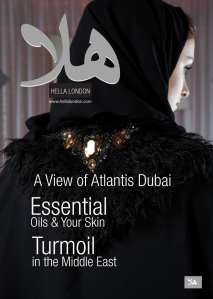Politicians in the UK and the media use the issue of immigration as a political football that can be kicked in whichever direction they wish, in order to appease middle-England’s concerns and capture some high-impact headlines. But are we putting ourselves at risk of scoring an own goal due to an ignorance of the UK’s labour market and the issues facing UK businesses?
The media agenda tends largely to set narratives positioning immigrants as the ‘villain’ under an umbrella theme of them being an ‘issue’ that needs to be dealt with and the country is being stormed by ‘illegals’ and ‘benefit scroungers’.
After all the debate, furore and opinion, the main issue still remains which is that the immigrant labour force is still needed to manage and work in jobs that the native population isn’t always willing to fill. The labour force issue isn’t going to be solved until either the native population can afford to or is willing to take on low-level menial jobs and it certainly won’t be addressed with a strict quota of only highly qualified IT staff from India.
We estimate that the 2011 Census will put ethnic and multicultural audience across the UK at 15% of the total population and with an increasing number of people arriving from Accession countries this number is likely to increase in an ever-expanding global market place.
However if you look at the multicultural groups who have been in the UK for decades like the South Asian, African Caribbean and growing Arab population, it is evident that the vast majority are contributing hugely to the labour force and the UK GDP. In fact estimated figures put the financial contribution at £150 billion (11% of the UK GDP). (according to ONS, IMATN, UN)
When tracking the migration flow of labour workforces around the world (US, UAE, Germany, UK) you will clearly notice that migrants are a group of people who have a significant purchasing power, once they are established within a country, ultimately helping to stimulate the economy.
Multicultural communities in the UK have a higher than average spend on television sets, mobile phones, white goods, cars, financial services and money transfers abroad, to name but a few of the elements they spend on.
If the UK fails to secure the labour force it needs to help the economy grow, then the adverse effect on productivity and a businesses bottom line will suffer, especially in the manufacturing, construction, agriculture and the vibrant service industry. Ultimately, the UK will be in a weaker competitive position globally and less able to take on the emerging BRIC economies like India, China, Russia and Brazil.
And this is touching only on the benefit to the UK’s economy from a domestic perspective. Once we better integrate new migrants into the UK and they feel part of and accepted by wider society as equals, UK businesses can tap into their intimate knowledge of foreign markets for export from local knowledge, shopping habits, consumer needs to cultural habits. The possibilities are endless and the potential is huge!
Saad Saraf
CEO
http://www.mediareach.co.uk
http://www.mediareachstar.com
https://mediareach.wordpress.com
http://alsaraf.wordpress.com
 A new magazine has been launched in London to target the Arab community in London.
A new magazine has been launched in London to target the Arab community in London.